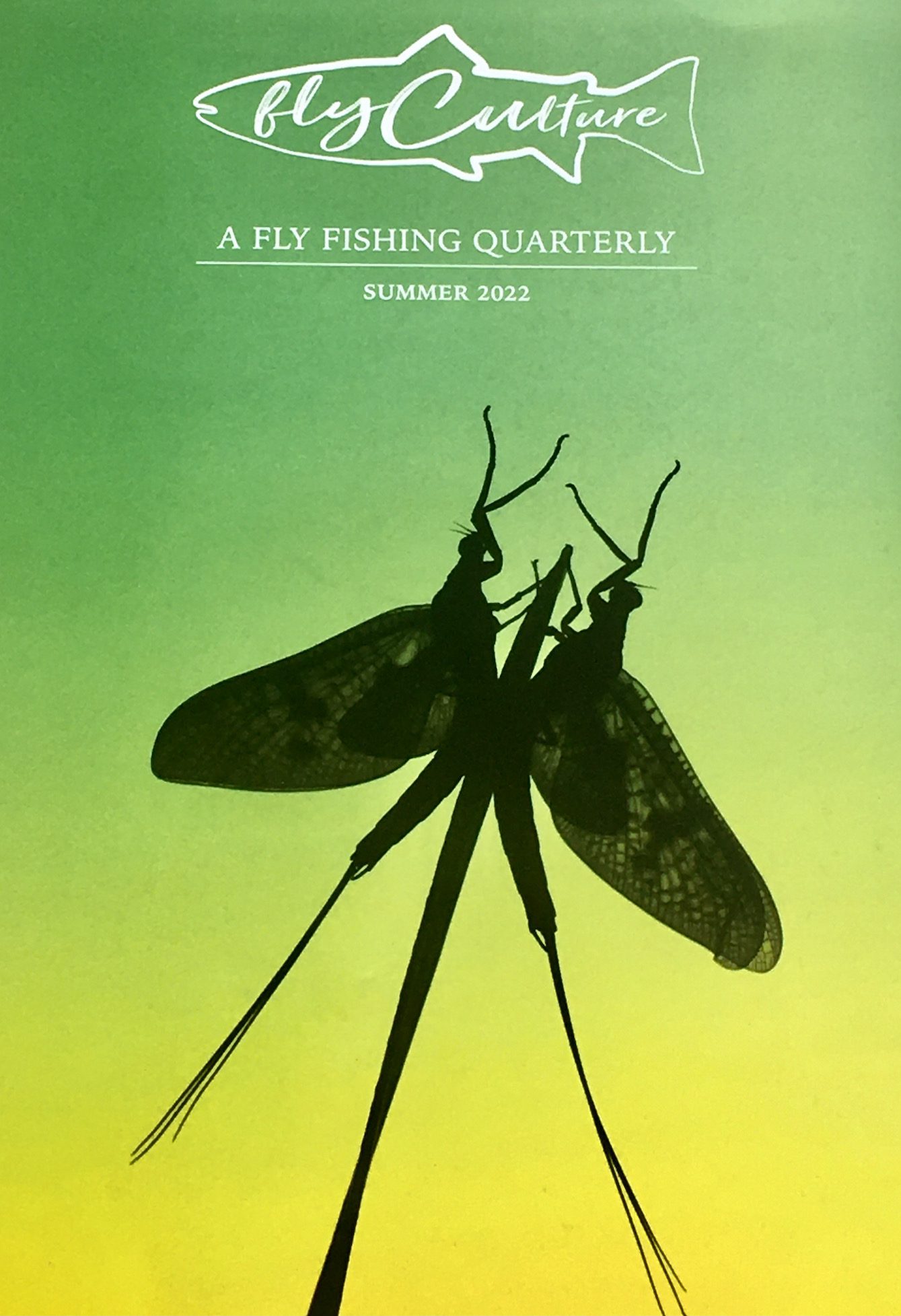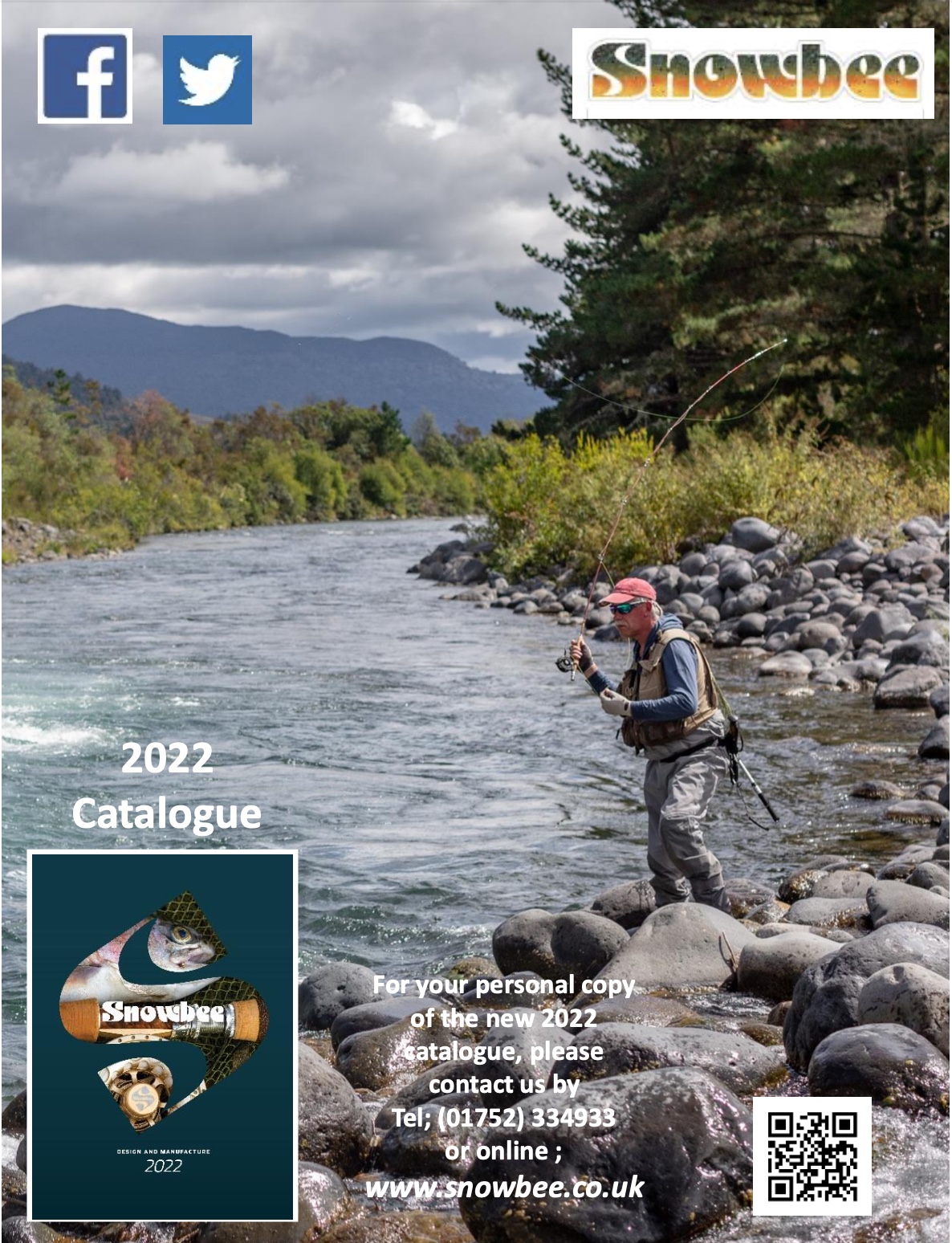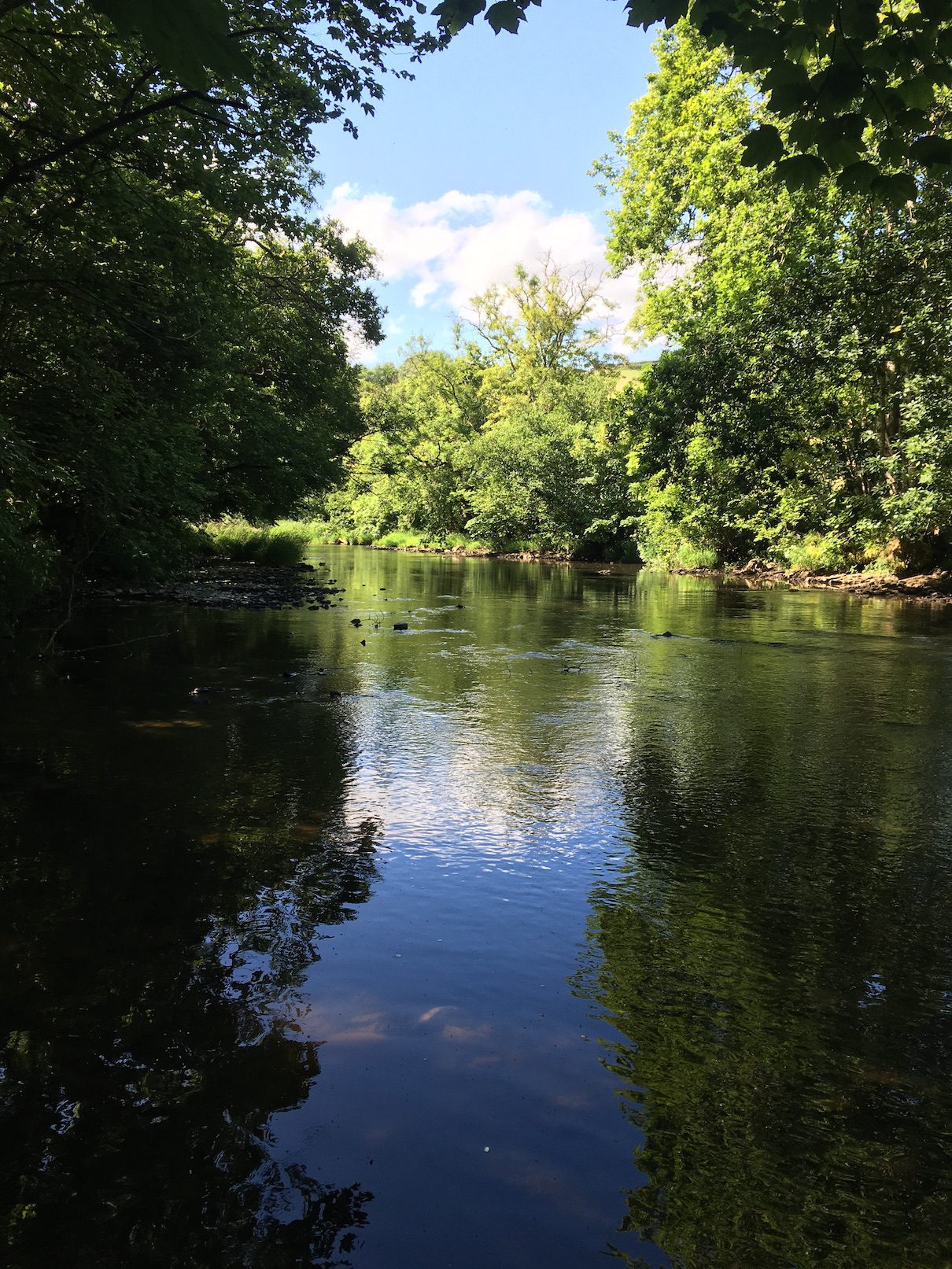
The River Torridge starts its journey close to the Cornish border near Meddon just a short distance from the source of the Tamar and shares many characteristics with this river.
The Torridge meanders through the heart of rural Devon gathering water from various tributaries including the Okement that flows from high on Dartmoor close to the source of its sister river the Taw. The Torridge eventually merges with the Taw in the estuary at Instow.
Rivers have their own unique characters and as an angler it is a delight to tune into this and become immersed into the ever flowing waters. I fish the Torridge throughout the salmon and trout fishing season that commences on March 1st and concludes on September 30th.
Each phase of the season is to be savoured from the cold days of early spring when wild daffodils decorate the banks to those mellow days of early autumn.
Little Warham Fishery is middle river nestled in a tranquil valley close to the village of Beaford. I joined Fly Culture Editor in Chief Pete Tyjas the day after midsummers day to target the wild brown trout that thrive within this beautiful stretch of river
After a long dry spring the river was showing its bones an all too familiar sight in recent seasons that have blighted the salmon anglers hopes. There were undoubtedly a few salmon and sea trout residing in the deeper pools. These fish may well be stirred to take an anglers fly when welcome rain falls to wake them from their slumber.
Anthony and Amanda moved to Little Warham five years ago when my wife and I joined them on a delightful June evening. https://www.northdevonanglingnews.co.uk/2017/06/25/little-warham-fishery/
They have worked hard in those five years nurturing the river banks and restoring the farmhouse to provide stunning self-catering holiday accommodation.
http://littlewarhamfishery.co.uk/accommodation/
Despite visiting the fishery five years ago this was my first trip to the fishery armed with a rod and I was eager to share a day’s fishing with Pete. Pete had visited the river several years ago when it was still owned by Terri Norton Smith. After a quick chat with Anthony, I bundled my gear into Pete’s four wheel drive and we set off for the river. A long and bumpy farm track eventually took us to a shaded anglers car park within the woods above the river.
It was at this point that I realised that I had left my camera, polaroids and hat on the front seat of my car back at the farm house. Fortunately, Pete had a spare hat and my phone would be adequate as back up to the camera.
We gathered our tackles and descended down the steep steps to the fishing hut depositing our lunch boxes and water. We placed our rods upon the rack beneath the hut and climbed the rustic steps. The veranda of the hut has a couple of seats on which to rest and admire the splendid view.
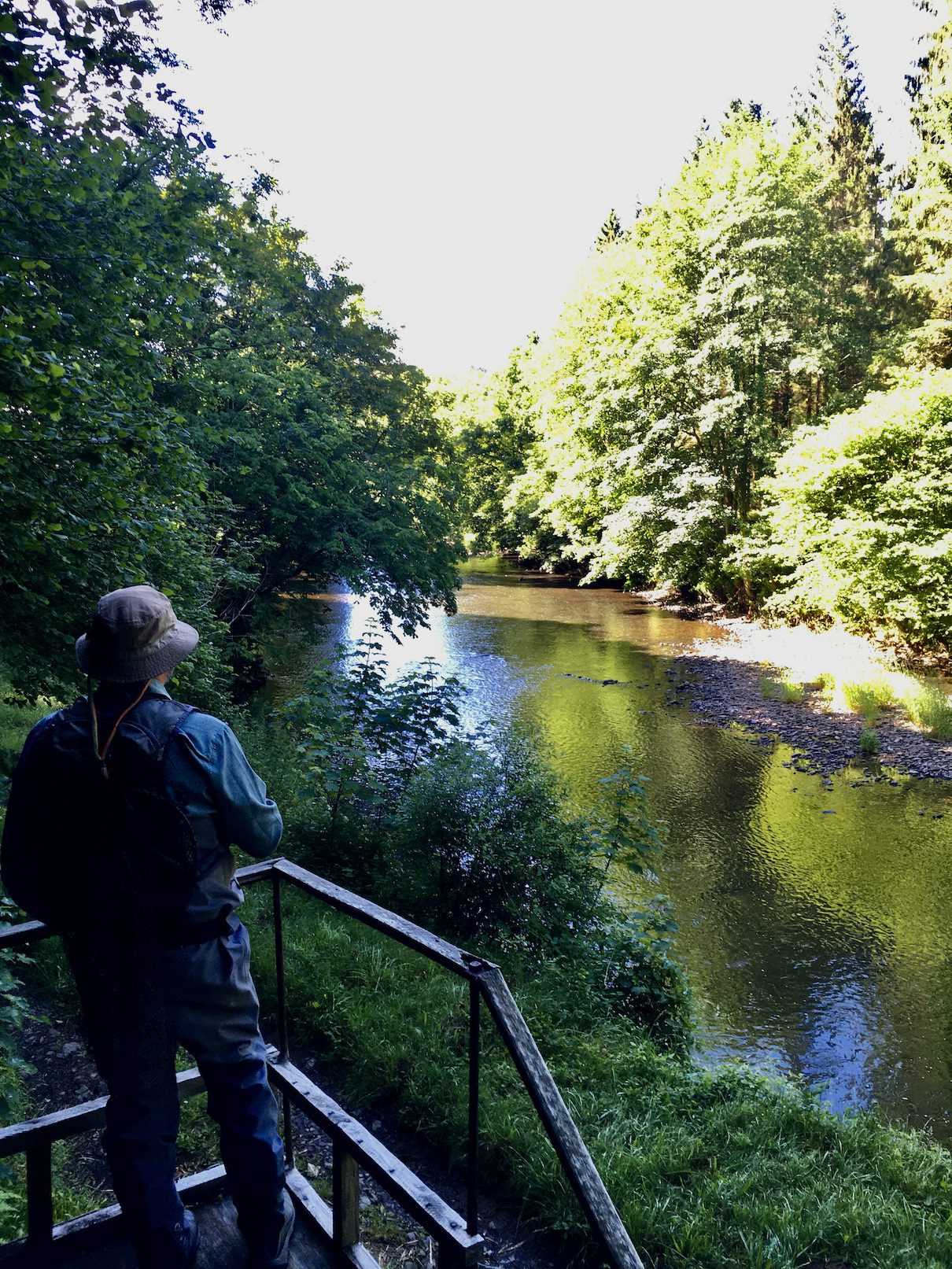
The inner confines are as a fishing hut should be retaining a timeless feel that has been shared by many generations of anglers. Above the fireplace is an etching of a salmon on a plank of wood. Testament to a salmon of 33lb, part of a catch of six salmon totalling 107lb made in April close to 100 years ago.
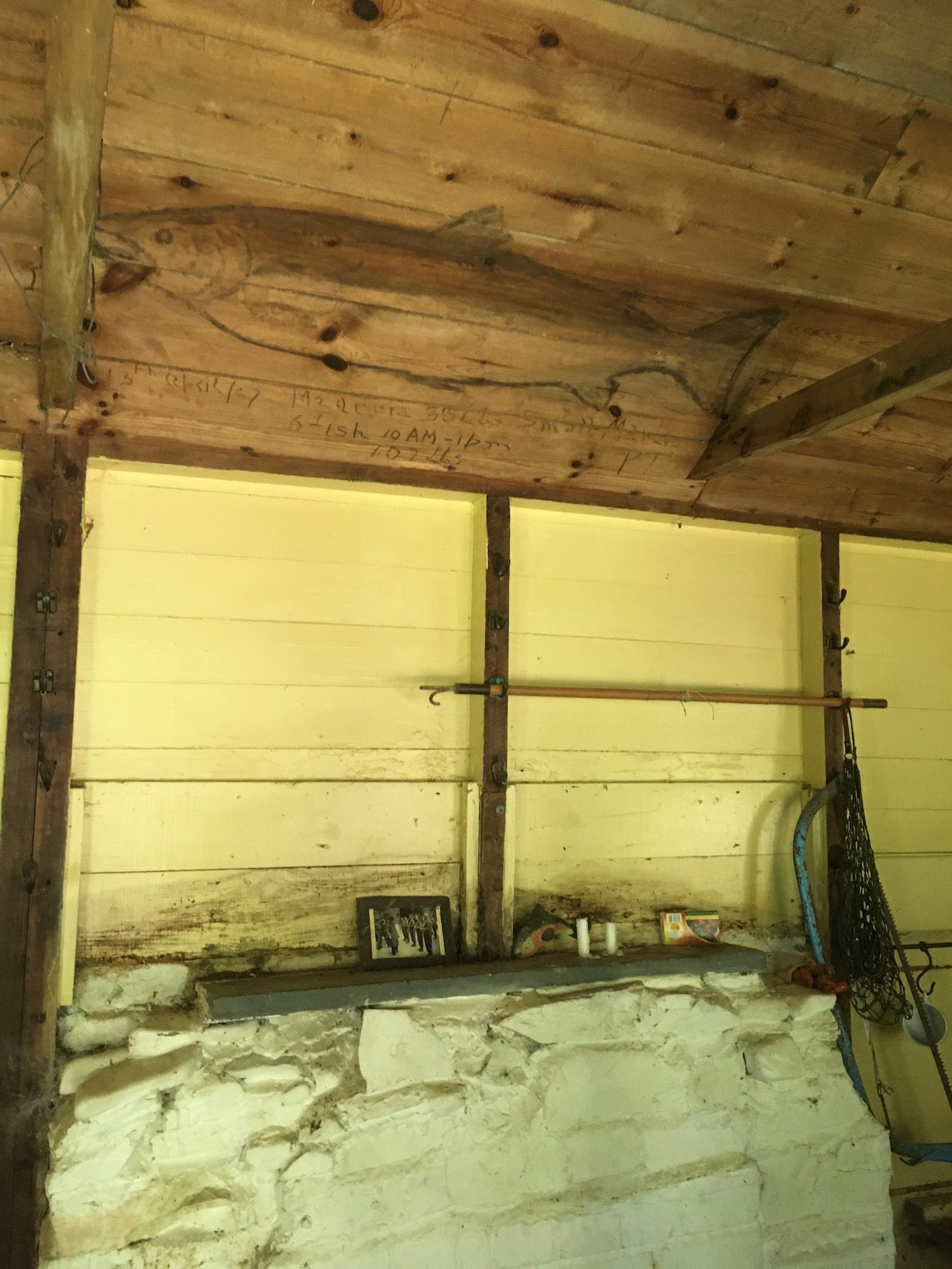
Pete and I chatted about the Torridge its history and challenges faced by the river and its salmon. Some of this chat may well be broadcast via the popular Fly Culture Pod cast.
The Torridge has inspired several authors over the years most famous of these is undoubtedly Henry Williamson, his books ‘Tarka the Otter’, ‘Salar the Salmon’ and ‘A Clear Water Stream’ weaving a rich tapestry of descriptive prose. Lemon Greys classic fishing book ‘Torridge Fishery’ tells of the fishing above Little Warham and is a worthy book for any salmon angler’s library. Charles Inniss’s book ‘Torridge Reflections” published in 2012 is a delight to read reflecting on Charles years on the river at the Half Moon Inn. The poet Laurette Ted Hughes was also inspired by the Torridge and his work is celebrated in ‘The Catch’ by Mark Wormald, published in 2022.
Pete and I were both keen to head for the river and set off to fish the upper beat above the hut on Anthony’s advice. We both set up with a duo set up a large bushy dry fly beneath which was suspended a small nymph pattern.
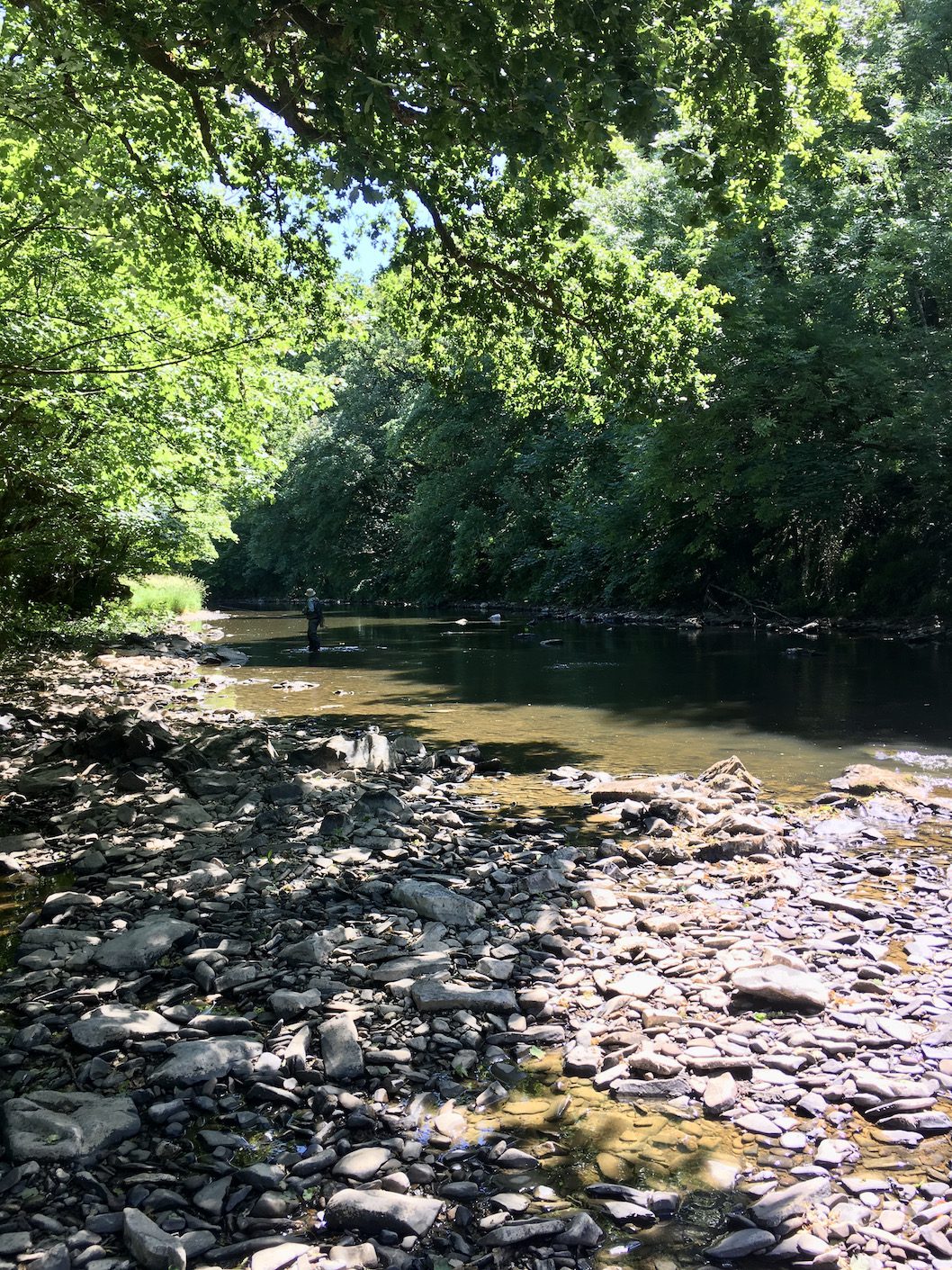
The Torridge is a peaceful river running much of its length far from roads or rail unlike the Taw that is flanked throughout most of its length by both. The summer valley was filled with birdsong as we approached carefully navigating through the lush green summer foliage. It had rained the previous night and the river had we were told risen by less than two inches. There was perhaps a slight tinge of colour but it was difficult to tell as the Torridge is never crystal clear like its sister river the Taw. We were hopeful that this slight influx of fresh would stir the trout to feed but the fish do not always read the script.
With the river running so low we both agreed that the best areas to target would be the faster running riffles and runs where oxygen levels would be enhanced. This faster water also gives discerning trout less time to inspect our offerings.
A flash of electric blue flashed past above the twinkling water. The sight of a kingfisher however fleeting always lifts the spirits an image that cannot be adequately painted with words. Damsel flies were also abundant hovering above the river and alighting on the riverside cow parsley its delicate white flowers punctuating the vivid greenery of mid-summer.
The sun was beating down from a cloud free blue sky and we looked for shady lies to cast our flies. Pete wandered further upriver; I extended a line but was irritated to find I had missed out a rod ring when threading the line. A few minutes or two of retackling resolved the issue and at last I managed to put out a line on the water.
The buoyant bushy dry fly bobbed down on the surface a tiny nymph suspended beneath. I focussed intently expecting the fly to disappear at any second as a trout seized the nymph below. I worked slowly upriver searching the water without early success.

I snagged a high tussock of grass on the back cast just as the fishery owner Anthony appeared to witness my incompetence. Anthony was accompanied by his four year old son, Brook was fascinated by the mysteries of the water’s edge. I helped him to turn stones in the search for life whilst Pete chatted with Anthony about their first five years at Little Warham.
After this short interlude our quest continued. My fishing rhythm eventually arrived after a slow start. Casting a 3-weight and tiny flies was a stark contrast to the large pike flies I had been casting two days before on the vast Chew Valley Lake.
Casting into the head of a shallow run the dry fly disappeared and I lifted the rod to feel the thrilling pulse of life on the line. In a second or two it was gone a small trout that had brought a welcome slice of optimism.
The morning drifted by as we waded the river searching and reading the water as we savoured the summer river.
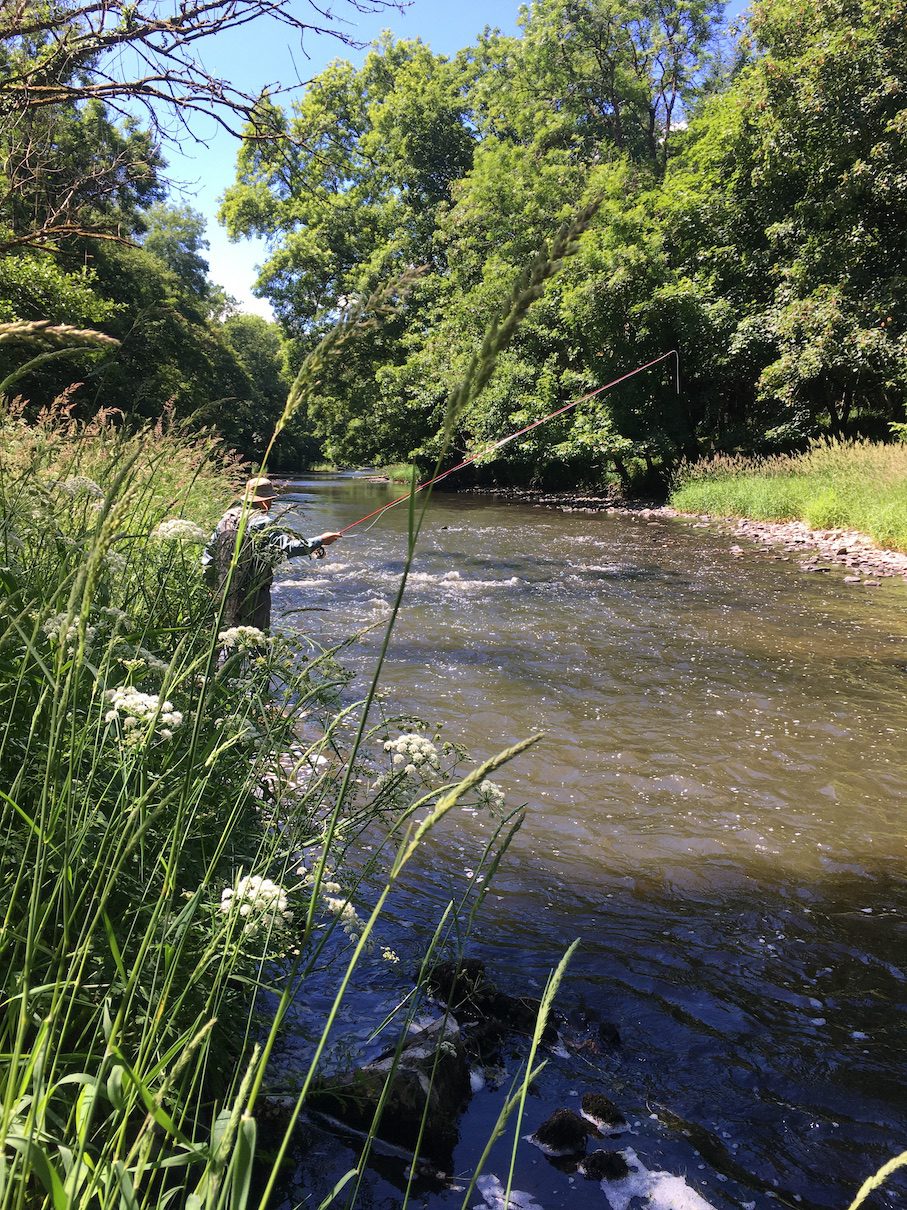
By midday we had covered the upper beat and decided to return to the fishing hut for a snack and a cool drink. As we walked the river bank we talked of fishing, of cricket and of people we knew.

Back at the hut it was good to take a break savouring the summer views from the open porch. The Torridge flows beneath the fishing hut through a long deep pool where it is easy to imagine salmon and sea trout resting. On the opposite bank a tall coniferous forest towered high whilst at the rivers edge mighty oaks dominate casting welcome shade across the pools. We discussed the trout’s apparent reluctance to feed reminiscing on the many excuse’s anglers concoct when the fish refuse to play the game. A bright hot summers day with a North East wind was always going to be a challenge.
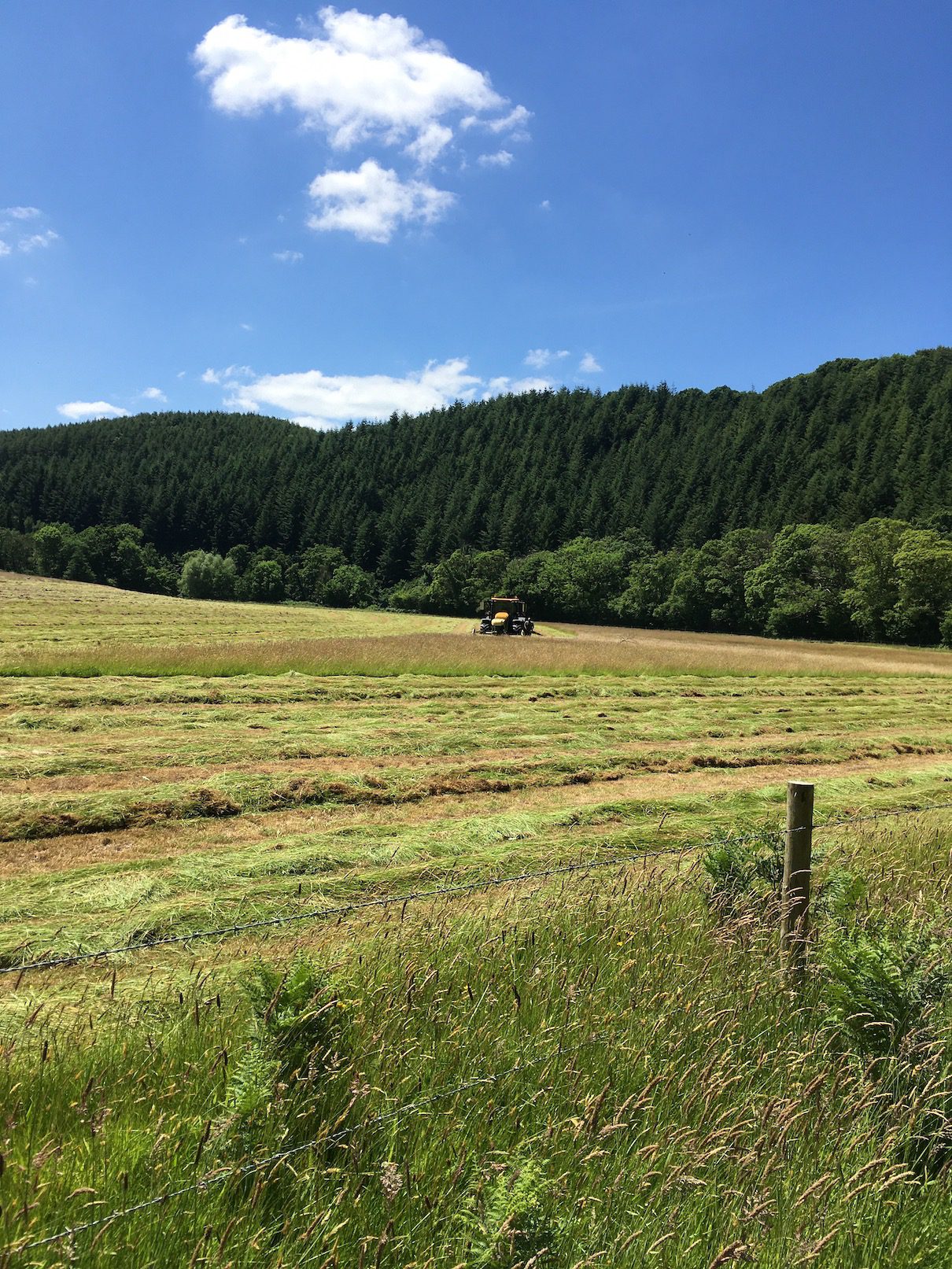
The afternoon would surely bring its rewards. We picked up our rods and strolled down towards the bottom of the beat. A long shady run beneath a wooded bank took our fancy and whilst Pete headed towards the tail I started midway flicking out the trusty duo.
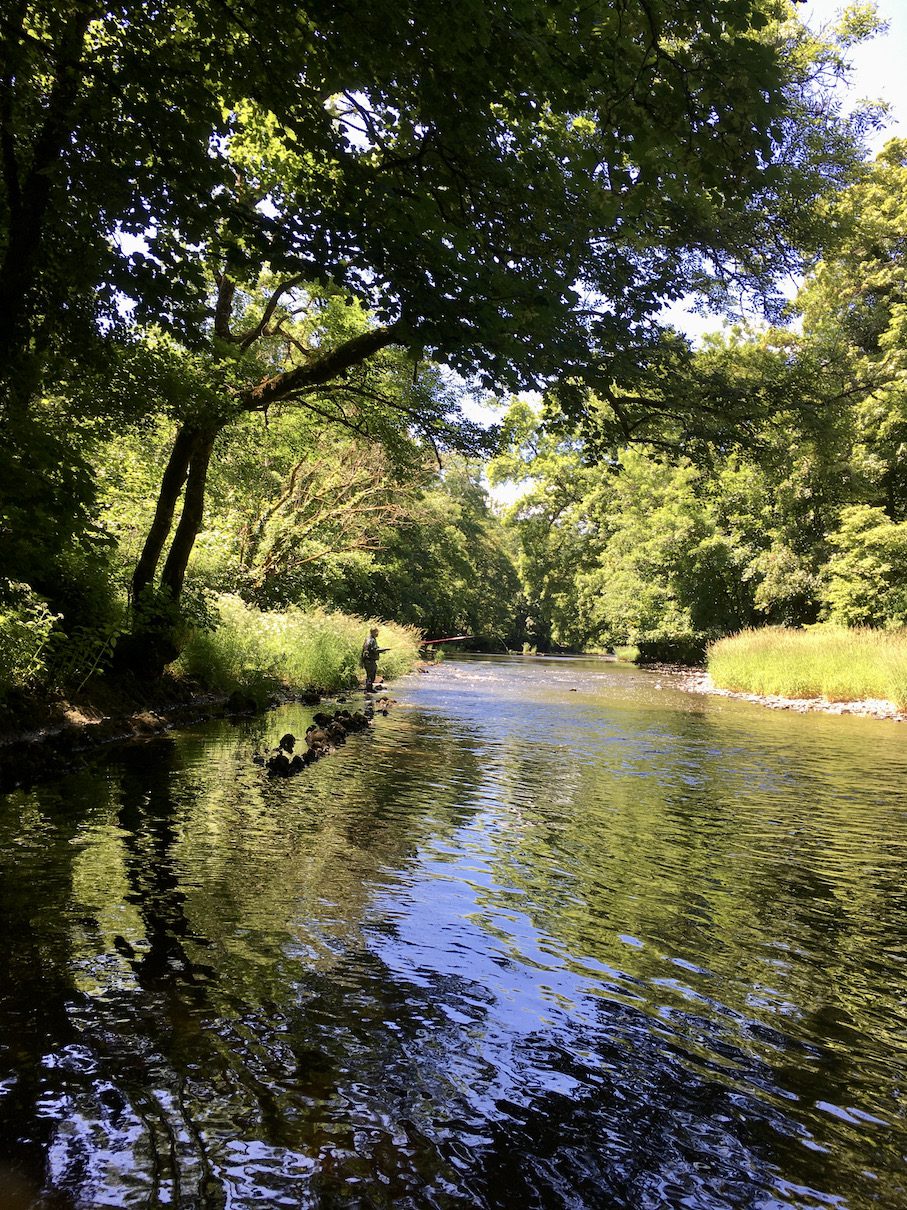
The fly disappeared, I lifted the rod and the light rod flexed in my hands. The small wild brown leapt from the river and battled gamely for a few moments. The barbless hook slipped from its jaws and I admired its beauty for a moment before allowing it to swim back from whence it had come.
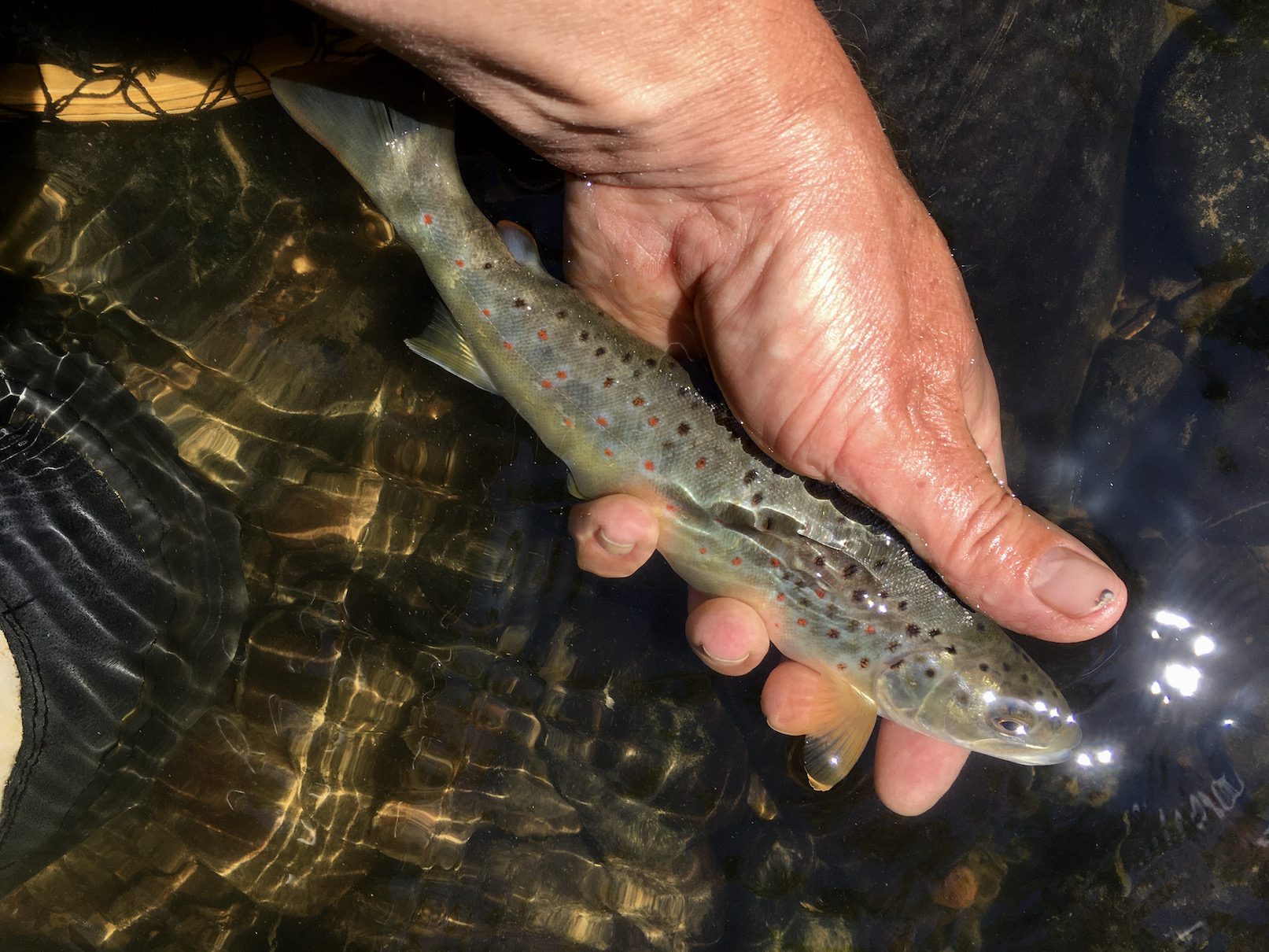
The river tumbled from pool to pool cascading over rocky ridges into deeper pits. Long shallow riffles and slowly swirling eddies. The steep wooded banks and dense vegetation creating a rich habitat. Throughout the day we continued to catch welcome glimpses of kingfishers as they streaked past.
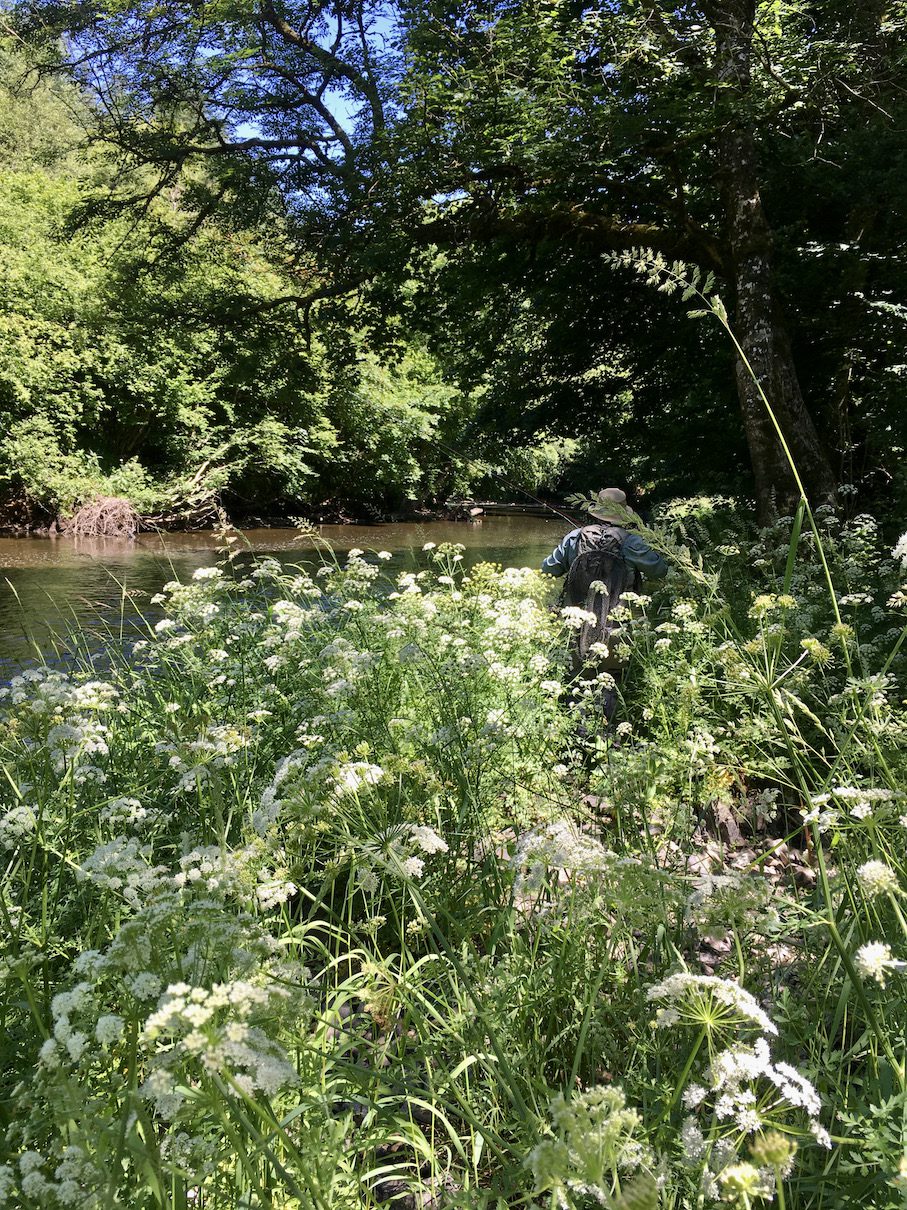
The hot sun beat relentlessly into the valley. Climbing up and down the banks and pushing through high vegetation perspiration dripping from my forehead reminded me of a jungle movie scene. With a throbbing head I recognised the early symptoms of heat stroke and set off for the fishing hut and a cool drink of water.
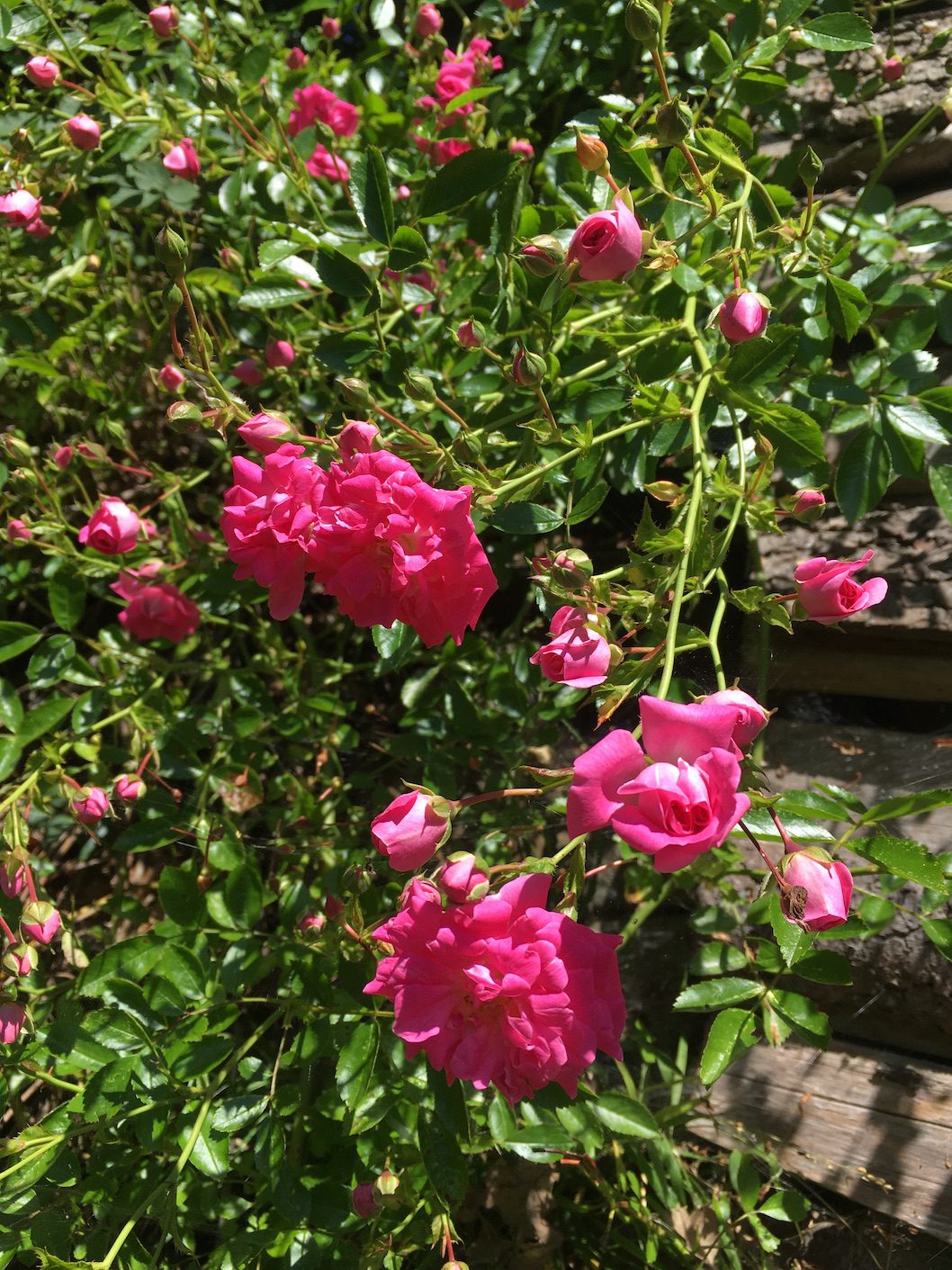
I found Pete fishing beneath the overhanging tree canopy where he had spied rising fish. I wished him well and went on my way to the hut.
After a cool drink I wandered back to find Pete stood mid river. Izaak Walton ended his classic book the ‘Compleat Angler’ with the phrase “Study to be Quiet” a phrase that is said to embody the philosophy of tranquillity and solace in angling. It was a pleasure to watch Pete’s skill at casting a delicate line across the water emersed within a kaleidoscope of reflections.
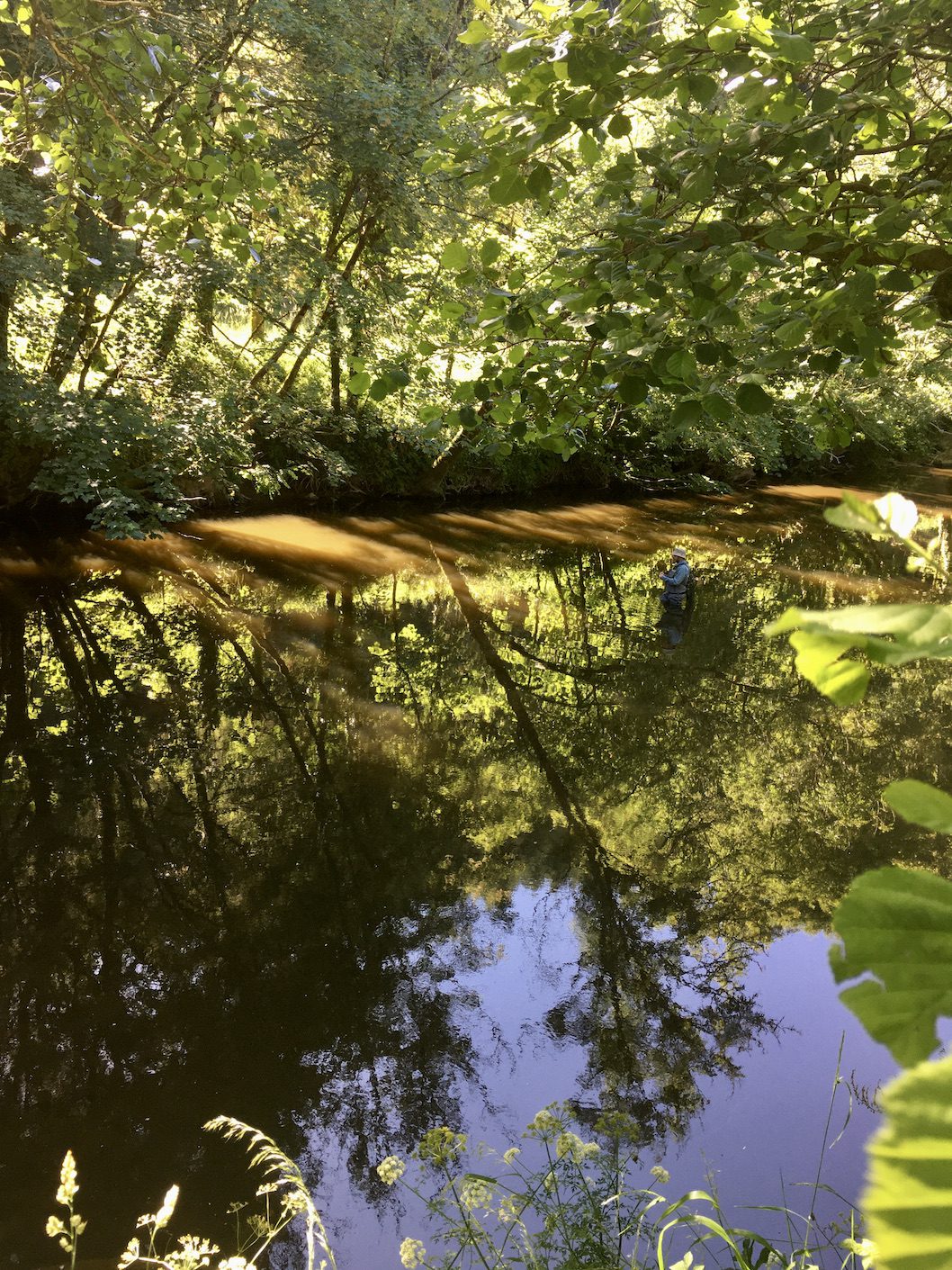
Anthony who had been cutting the grass appeared at my side and we both watched as Pete gave a commentary on the fish he had spied rising quietly under the shady bank. He had stood quietly observing and merging into the river scene. Numerous dry flies had been tried without success. After each offer to the trout, he had rested the water totally focussed upon deception. A dimple upon the surface and a tell tale ring. Pete’s line glided out the fly alighting on calm waters to drift over the fading rings. A swirl, a curse. Twice more the fish was tempted and escaped the hook! Pete reluctantly wound the line onto his reel and slowly waded towards us. Once again the water was broken by the rising fish. Pete caught the movement in the corner of his eye and stopped. Carefully he worked out the line and took careful aim dropping the dry fly precisely. The delightful moment of deception was followed by a flurry of spray. The rod pulsed and bended as the fish dashed for freedom.
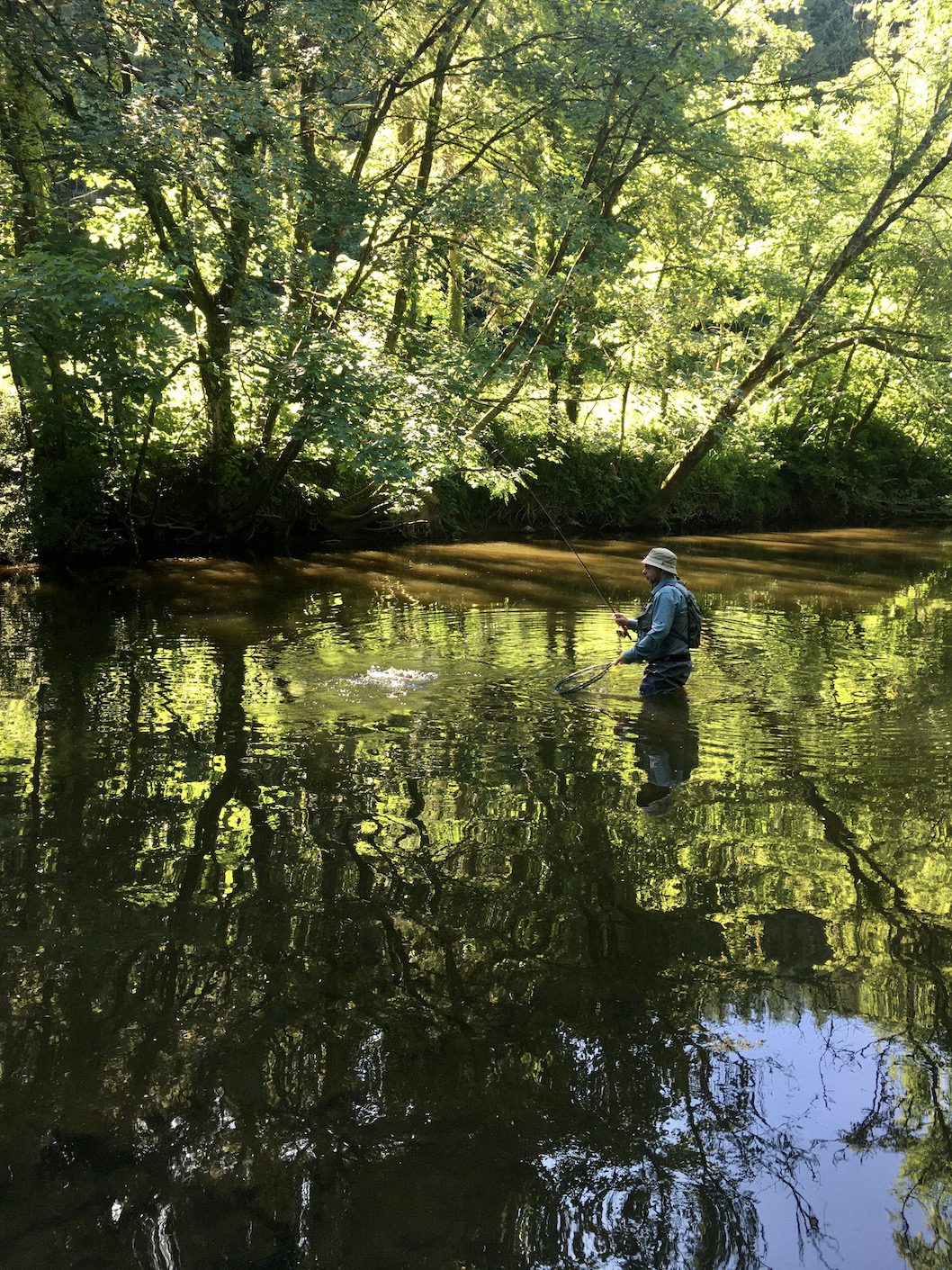
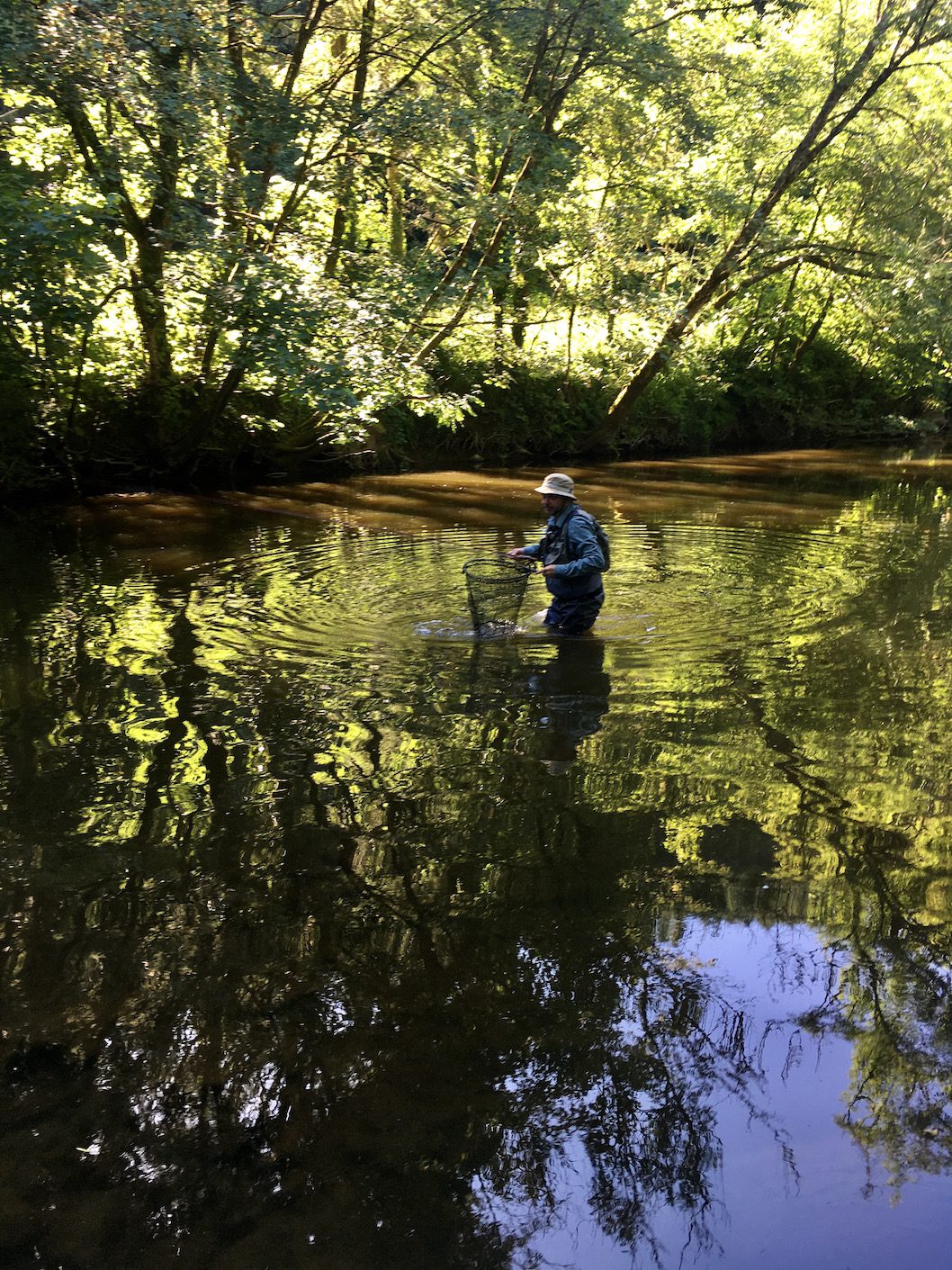
It was soon safely in the net a beautiful wild brown trout with red and black speckled flanks of olive and bronze. At around a pound it was a wonderful prize earned by slowing down, observing and applying a large degree of patience and stealth.
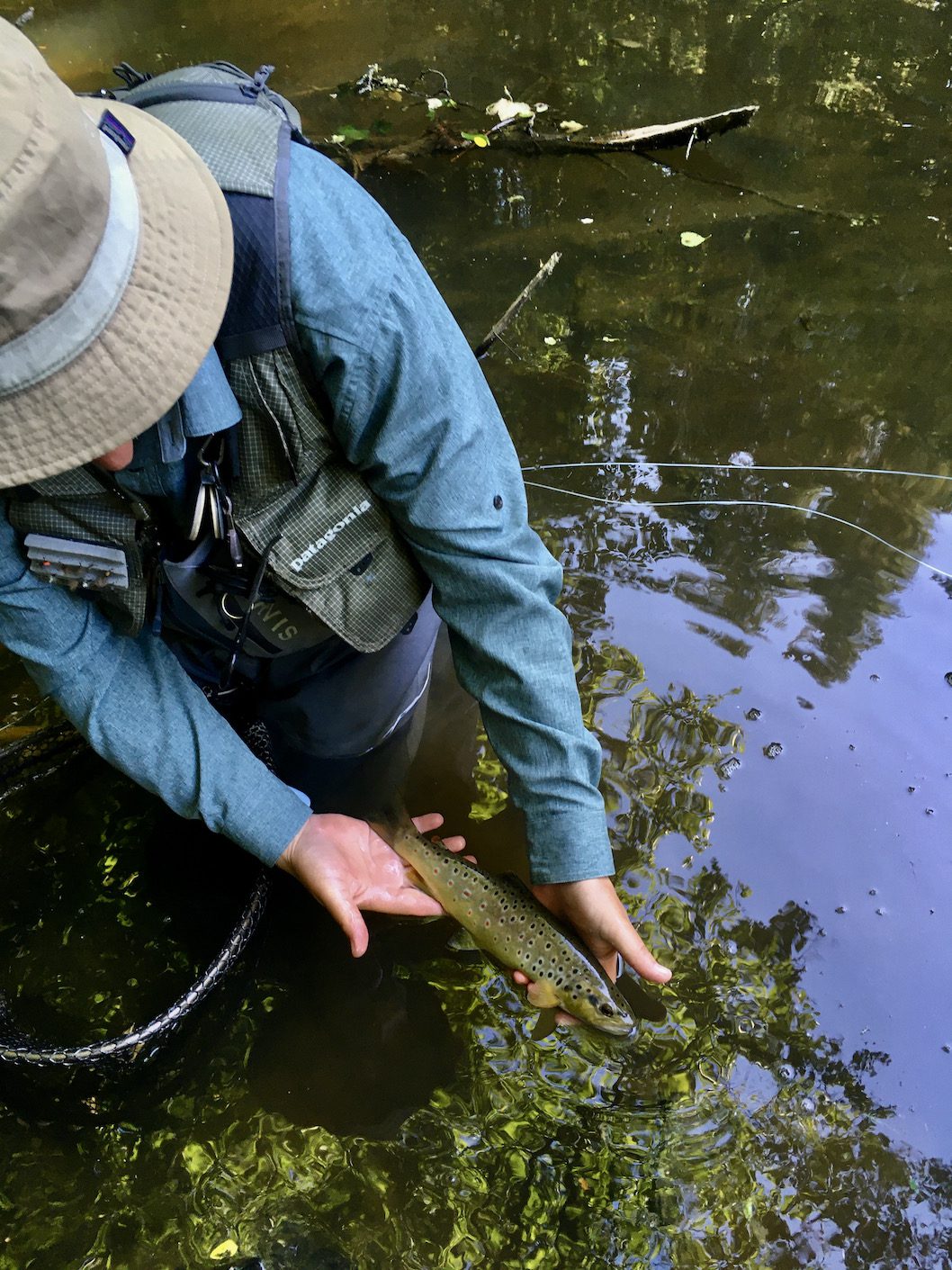
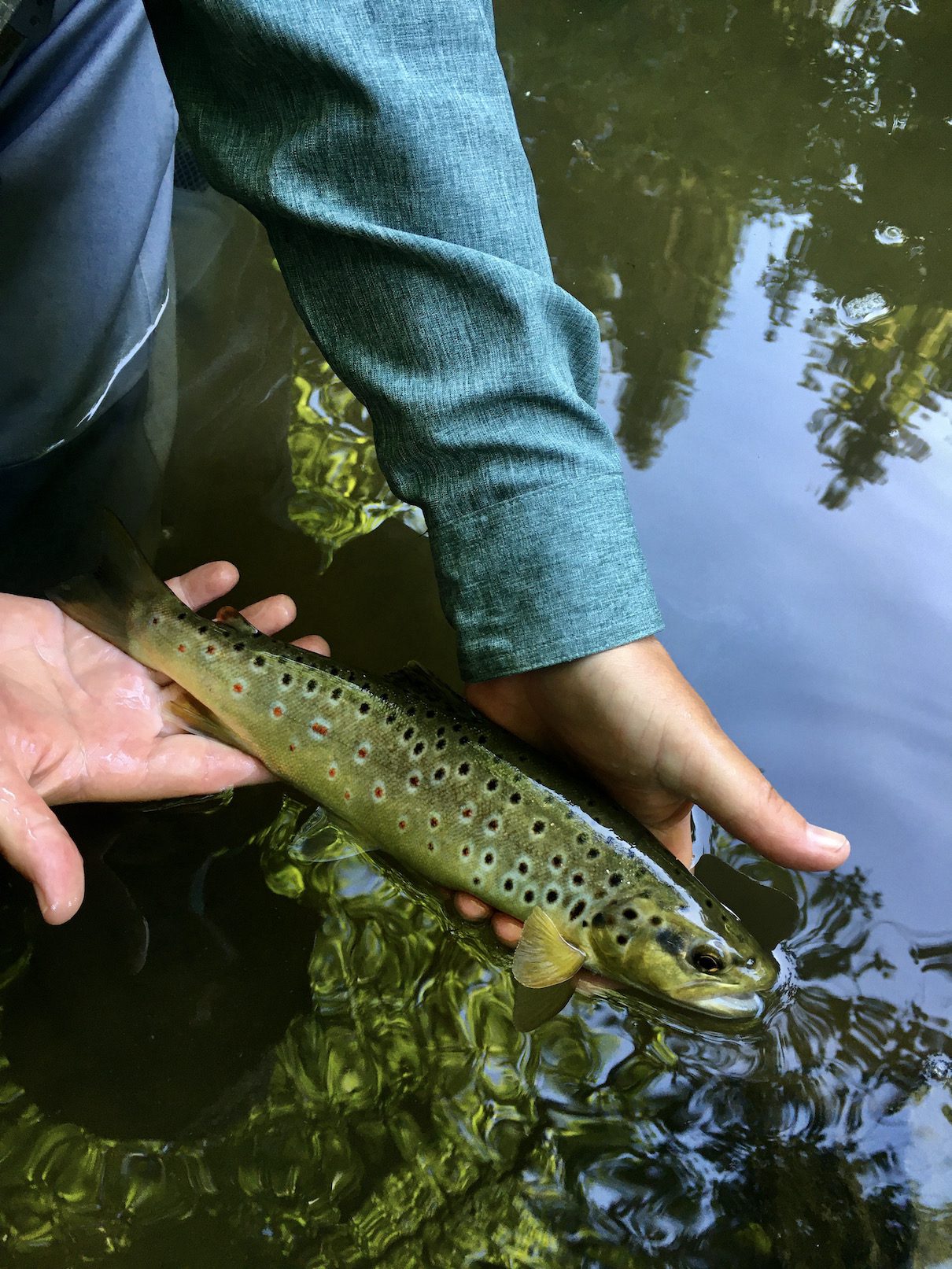
As we walked back to the car I spied a rising fish but with throbbing head and creeping nausea I knew that the fish would have to wait for another day.


